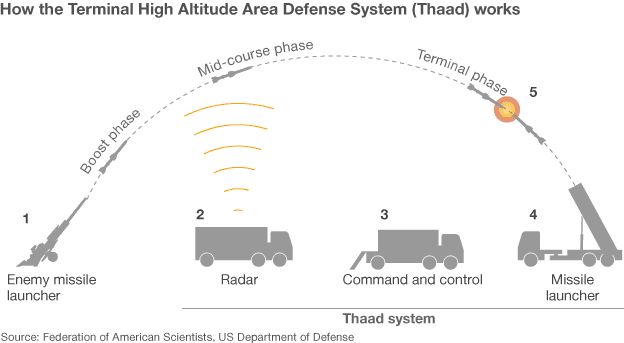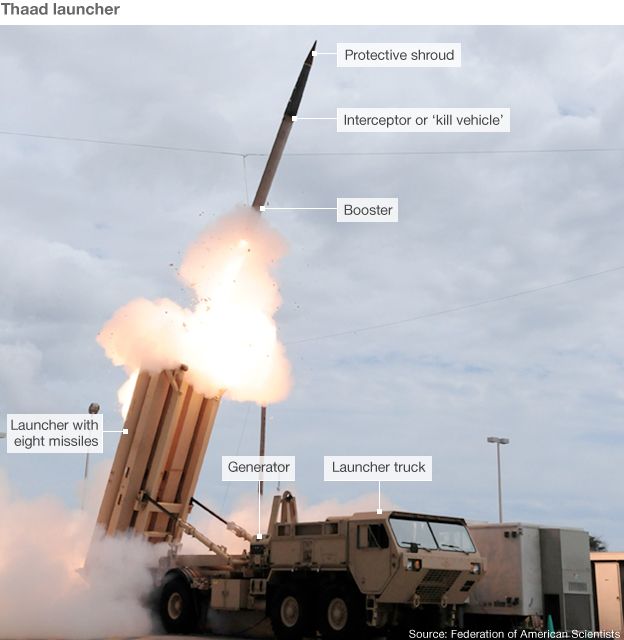N Korea threatens 'physical response' to US-South Korea anti-missile system
By BBC News
North Korea has threatened a "physical response" after the US and South Korea announced an agreement to deploy an advanced missile defence system.
The Terminal High Altitude Area Defense (THAAD) system would be solely to counter the threat from Pyongyang.A statement by the military in North Korean state media sets out the "unwavering will of our army to deal a ruthless retaliatory strike."
The North regularly makes such threats against the South and the US.
The rhetoric is normally ratcheted up at times of high tension. When the US imposed sanctions last week on North Korean leader Kim Jong-un, Pyongyang described the move as an "open declaration of war".
- In depth: North Korea's missile programme
- What nuclear capability does the North have?
- Is South Korea equipped to defend itself?
It is not yet clear when the system would be deployed, where it would be sited and who would have final control.
What is the Terminal High Altitude Area Defense System (THAAD)?
- Shoots down short- and medium-range ballistic missiles in the terminal phase of their flight
- Uses hit-to-kill technology - where kinetic energy destroys the incoming warhead
- Has a range of 200km and can reach an altitude of 150km
- US has previously deployed it in Guam and Hawaii as a measure against potential attacks from North Korea

2. The Thaad radar system detects the launch, which is relayed to command and control
3. Thaad command and control instructs the launch of an interceptor missile
4. The interceptor missile is fired at the enemy projectile
5. The enemy projectile is destroyed in the terminal phase of flight
The launcher trucks can hold up to eight interceptor missiles.

The statement from the artillery bureau of the North's military said it would take a "physical counter-action to thoroughly control THAAD... from the moment its location and place have been confirmed in South Korea" .
The THAAD system is also opposed by Beijing and Moscow, who see it as the US hardening its military presence in the region. On Friday China said the system will harm peace and stability, and lodged a protest with the US and South Korean envoys.
But the US and South Korea argue it is necessary in the wake of intensifying threats from the North which, although banned from such activity by the UN, has conducted a series of missile tests and in January carried out its fourth nuclear test.


0 Comments:
Post a Comment
Subscribe to Post Comments [Atom]
<< Home